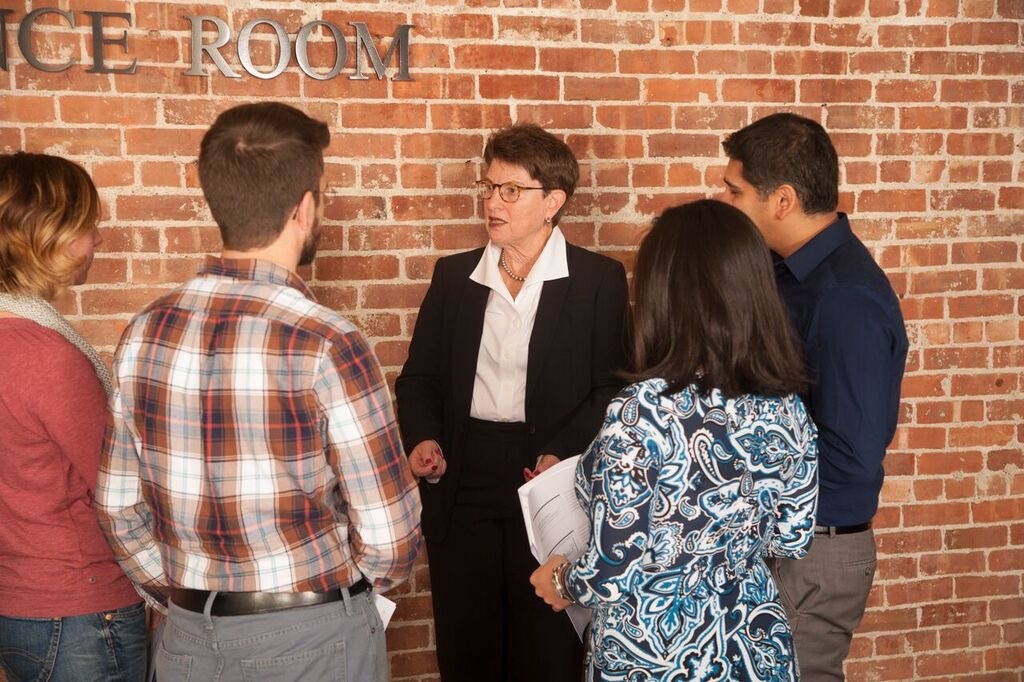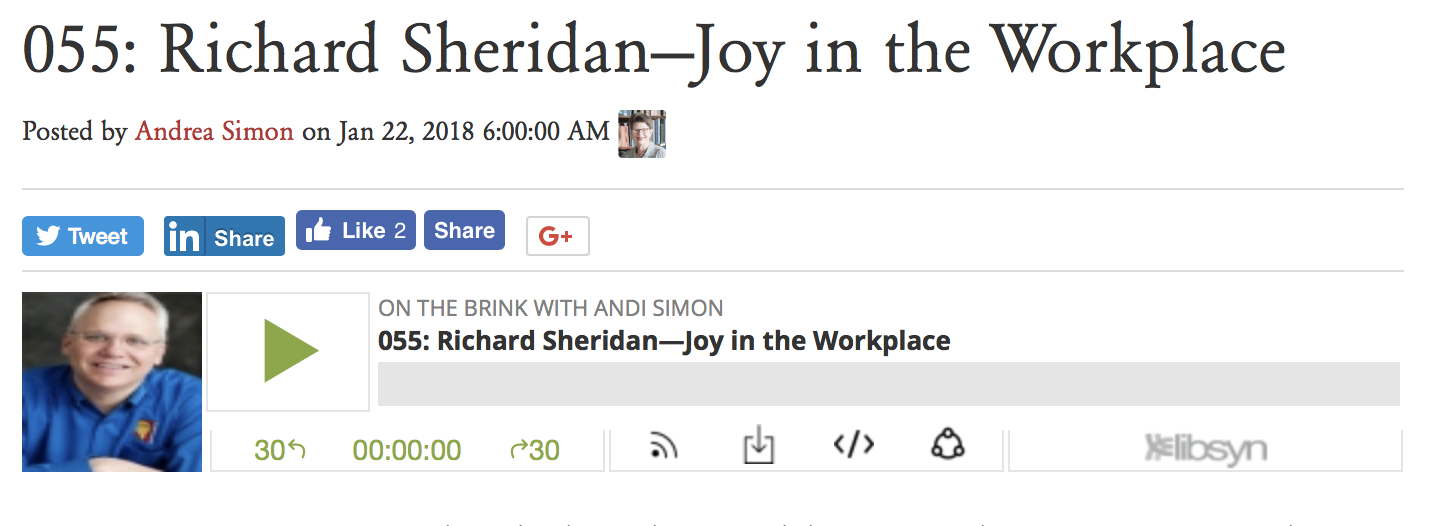Anthropologists seem convinced that no one wants to hire them. With very low unemployment and almost 6 million jobs going unfilled in the U.S. today, shouldn’t highly-skilled, well-trained and capable anthropologists be able to find work of some kind that’s related to their education and interests?
My answer is yes! We are corporate anthropologists that help companies change. The demand is high, and the engagements are significant.
The #1 worse major in colleges today is — anthropology! What’s the problem?
Perhaps it is time for anthropologists to re-think what businesses need and how they can open a new Blue Ocean to help solve the business problem, not try and market anthropology to industry. Anthropologists may have got this all backward.
Good news: major businesses are now putting anthropologists on staff.
While the 4000 or so anthropologist jobs listed below may not seem to be an overwhelming number, the major job placement firms show the following job opportunities for anthropologists as of January 4, 2018:
| Job Site | Number of Anthro Jobs Posted |
| Indeed | 1229 |
| Career Builder | 41 |
| Monster | 1000+ |
| Zip Recruiter | 1418 |
| Glass Door | 315 |
There is a growing body of literature highlighting companies such as IDEO, Jump, Steelcase and even Ford Motors that are hiring anthropologists and applying anthropological methods to their businesses. Intel, Microsoft and Google have a number of anthropologists on staff for years.
Do current graduates with an anthropology degree have a hope of getting a good job?
This is the impassioned plea I get from worried parents and from graduates themselves who want to come to work for us at Simon Associates. All of this angst has caused me to wonder:
- Were people in industry hiring anthropology PhDs back in the early 1980s but aren’t now?
- Have we produced too many anthropologists, causing a glut of supply but not enough industry capacity?
- Are anthropologists doing enough internships during their undergraduate years to prepare for the workplace—or instead, are they doing classic field work in small scale societies?
- Maybe they don’t understand how their expertise and experience could actually be of value in the workplace?
- Do they know how to make their training and interests relevant?
- Maybe it is the word “anthropologist” that is holding businesses back?
My wanderings, or how to apply anthropology to business to get real results.
Here are some of my wanderings from my years in business and also running a firm focused on culture change. When we launched Simon Associates Management Consultants (SAMC) in 2002, we positioned it as a company of highly-experienced corporate anthropologists working with businesses that need or want to change.
People hate to change. But our clients are often stalled and in need of some new perspectives to see things with fresh eyes. This is how we have brought anthropology into the corporate arena—by making it about them. What did they need? How could we help them grow?
This is an area I have focused on from the beginning of my career as an anthropologist. It is also the topic of my book, “On the Brink: A Fresh Lens To Take Your Business To New Heights,” a collection of seven case studies of companies that hired us because they were on the brink of collapse. After a little anthropology, their businesses soared!
Reflecting on why each of these stories culminated in a real turnaround, I thought I would share some of my own experiences to see if others could rethink their anthropology training and how to convert it into a great career.
It all began by chance.
Looking back on my career, I was finally a tenured professor at Ramapo College in New Jersey—a great, young college built around interdisciplinarity. Then out of nowhere, I was introduced to a group of Citibankers during a period of the bank’s transition.
At that time, banking was going through deregulation. Citibank was hiring talent from packaged goods and retailing and other industries. My husband was a Citibank executive, and we were having cocktails with a bunch of senior leaders. Before long, one of them asked me what an anthropologist was and what I did. What I recall, all these years later, was that I told them I was interested in how people changed—when they migrated, when they had to change jobs, when their businesses were changing.
The conversation was quite memorable because it didn’t take long for one of them to ask if I wanted to come into the bank and help them change their culture and their staff. They had thousands of folks who had signed on for a “civil service” type of job. They worked from 9-12 and 1-3, and if they didn’t steal, they were there for life. Could I help change them?
Voilà, out of the blue I took a leave from the college and became a consultant in banking.
Was this because I was an anthropologist or because they had a need and I was able to re-package myself to solve that need? I emphasize this because it is not what we do or who we are. It is all about WHAT THEY NEED! I saw that early on. These bankers were not at all concerned with what anthropologists did. Just do it! was their attitude. Solve the problem and help change the banking world.
We don’t have too many anthropologists. We just have to teach them to be relevant in a world that needs them.
I don’t believe we have too many anthropologists. I do believe we are not training them to think about what they can offer businesses that adds real value in innovative ways. There is a lot of current research targeting working anthropologists out in the field who could serve as models for new graduates, as well as training grounds for legitimizing the anthropological approach and giving students internship opportunities.
For example, I love what Steelcase is doing to try and rethink how we work today and into the future. As they write about the anthropologist, Donna Flynn, in this issue of Fast Company:
They have created a 19-person team lead by an anthropologist, Donna Flynn. “…Flynn’s team is responsible for “thinking into the future”: understanding the trends shaping the ways we work and sharing that intelligence with Steelcase and its customers.”
“The initiatives that WorkSpace Futures tackles are so big they call them “quests,” as they are long, oft-meandering journeys of discovery. Flynn talked with Fast Company about a few of the most pressing quests for leaders to wrap their minds around: the ongoing redefinition of collaboration, the role of privacy in getting work done, the progression of worker well-being, and how all of these trends relate to the places in which we work. Places that are changing.”
That sounds like a very “cool” job for an anthropoogist.
Others I find really amazing are the Hi-tech anthropologists at Menlo Innovations. You can listen to them on our podcast:
For more on how anthropology can be a real asset to companies, check out these blogs, podcasts and white paper
- Blog: Can You See It? The Coming of Age of Corporate Anthropology Is Here.
- Blog: How Anthropology Can Save Your Business
- Blog: What Fortune 500 Companies Learn From Corporate Anthropology
- On The Brink podcast: Thinking Like An Anthropologist
- On The Brink podcast: How Anthropology Helps People See Things With Fresh Eyes
- White Paper: What Is Corporate Anthropology?
Could your business benefit from a “little anthropology”?
At SAMC, we’re all about applying the tools and methods of anthropology to help organizations adapt to change — get “unstuck”— so they can soar. Please contact us for a free 1-hour consultation to discuss how we might help your organization adapt and thrive. We look forward to hearing from you.
From Observation to Innovation,

Andi Simon, Ph.D.
Corporate Anthropologist | President
Simon Associates Management Consultants
Info@simonassociates.net
@simonandi




